
views
- People with fragile egos base their self-worth on the judgment and acceptance of other people and tend to have an unstable sense of self as a result.
- Someone with a fragile ego is likely to be defensive and prone to overreacting when critiqued. They may also be a perfectionist and have trouble making decisions.
- Acknowledge your talents and best qualities to boost a fragile ego. Develop a growth mindset, and prioritize learning over being perfect or chasing approval.
What does it mean to have a fragile ego?

People with fragile egos generally have a low sense of self-worth. Their sense of self-worth tends to be based on the judgment and validation of others rather than their own internal validation. While it's true that everybody relies on external validation to a point, someone with a fragile ego relies on it too much, to the point that they have an unstable sense of self because their ego relies on the feedback they get from others. A “fragile ego” can also be called fragile self-esteem, as well as “unstable,” “insecure,” “contingent,” and “defensive” self-esteem. Someone with a fragile ego may need a lot of reassurance from others because they rely so heavily on external validation. They may also change themselves (in terms of behavior, opinions, and so on) to get more approval from as many people as possible.
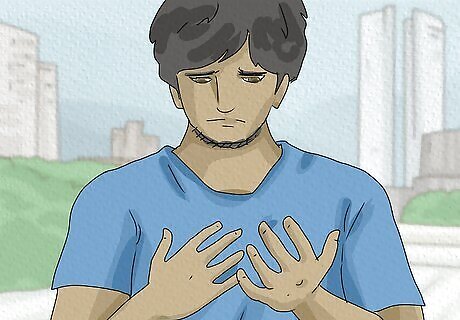
A person’s ego reflects how they see themselves and their worth. Self-esteem and ego are terms that go hand-in-hand since ego is essentially a person’s sense of self-worth. Ego refers to a person’s thoughts and feelings about themselves and their identity. When someone has secure self-esteem (meaning their ego is not fragile), they generally have a strong sense of who they are, and their self-worth does not depend on external validation. By comparison, secure people are comfortable and confident in who they are, while people with fragile egos may often feel unsure of themselves and develop unrealistic views of themselves. Therefore, having a secure ego (or high self-esteem) is often a very good thing!
Signs of a Fragile Ego

Defensiveness It’s normal to get defensive when someone insults you or challenges you in a disrespectful way. However, people with fragile egos tend to perceive even the most constructive criticism or helpful suggestions as personal attacks. Because of this, they tend to be easily offended or upset and often overreact when they feel like someone is criticizing them. For example, if you found an error in someone else’s math equation and tried to point it out to be helpful, someone with a fragile ego might assume you're insulting them and get upset.

Perfectionism People with fragile egos also tend to be overachievers, partly because they can be so hypersensitive to criticism. When someone has a fragile ego, their fear of being judged or critiqued may lead them to try and be the best at everything they do. They’ll go above and beyond the call of duty because if they’re "perfect," they feel people will be less likely to criticize them. For example, someone with a fragile ego and perfectionist tendencies might work out almost obsessively to try and be perfectly physically fit or pay for plastic surgery because they want to look "perfect."

Fear of failure If someone has a fragile ego, they likely don’t take failure well. In their mind, failing at something brings them down in the eyes of others, making the people around them judge their capabilities and worth. Therefore, failure often makes them feel like they’re worthless—even though it’s absolutely not true. For example, if someone has a fragile ego, they might refuse to quit a job (even though they don't like it) because they're afraid that will make them look like a failure.

Craving attention In some cases, people with fragile egos didn’t get the attention they needed from their parents or guardians as children—which can make them want to be the center of attention as often as possible in adulthood. They may try to make conversations about themselves or even make themselves the center of attention at events that aren’t really about them. For example, they might drop news about their big promotion at someone else's birthday party, share the news that they're pregnant at a friend's wedding, and look for other ways to seize the spotlight.

Indecision People with fragile egos tend to doubt their own judgment, not trusting themselves to make the best decision—which can lead to quite a bit of indecisiveness. They may hold off on making a decision even when it’s an urgent matter, double-check what everyone else thinks they should do, and change their minds multiple times before finally making a decision. For example, if a friend of yours had a fragile ego, they might ask you what they should do for their birthday rather than making their own decision—likely because others' approval matters more to them than doing something they enjoy.

Caring about appearances When someone has a fragile ego, one of their worst fears is the idea of other people finding out about their flaws. They want to impress people, and they want others to see them in a positive light only—which often means they want others to notice that they have things like social status, intelligence, money, nice things, and so on. Someone with a fragile ego might talk themselves up around other people they want to impress, for example, or buy themselves fancy clothes to look like they have a lot of money.

Talking negatively about themselves Insecurity is a huge sign of a fragile ego because fragile egos are defined by a lack of self-esteem and self-worth. As a result, people with fragile egos often describe themselves negatively, mentioning all the things they can’t do rather than the strengths and talents they do have. For example, if you asked someone with a fragile ego about their hobbies, they might say, "Well, I'm absolutely terrible at creating music, so I listen to a lot of rock and folk music instead." Conversely, someone with a secure ego might simply say, "I love to play music and listen to it. Rock and folk are my favorite genres."

Difficulty accepting feedback For someone with a fragile ego, admitting that they can improve on something feels the same as saying they’re a failure. They’re often closed off to feedback because they want to feel like they’re perfect, and taking someone else’s advice means acknowledging their imperfections. Even if they accept feedback, someone with a fragile ego may take it personally nonetheless. For example, if you told someone with a fragile ego that their cooking could use a little more salt, they might say, "Well, I think it's fine as it is," rather than taking your advice into account.
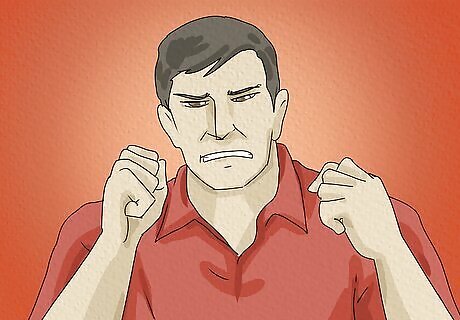
Holding grudges It’s easier to hurt a person’s feelings when they have a fragile ego because even the slightest disagreement or critique can make them feel threatenedand insecure. Consequently, they may have a hard time letting go of the hurt they feel and moving on from things that upset them–which is why people with fragile egos tend to hold grudges. For example, if a friend with a fragile ego asked whether you liked the decor in their home and you told them you weren’t really a fan, they might get offended and continually remind you about it each time you see them. On the other hand, someone with a secure ego might just agree to disagree, shrug off your comment, and move on.
How to Overcome a Fragile Ego

Determine the source of your fragile ego. The sooner you understand what’s causing your lack of self-worth, the sooner you can start addressing the source of the problem. For example, were you hurt by someone as a child? Someone important may have criticized you frequently or made you feel like you were being judged. Figure out what causes you to feel insecure and why you feel that way. Try keeping a journal and ask yourself questions as you write; journaling is a super effective tool to help you make sense of your thoughts and feelings. For example, you might ask yourself questions like, “What do I really value in life, and what do I pretend to value to get acceptance from others?” or “Why am I afraid of failure or criticism? Is either of those things such a bad thing?”

Focus on your best qualities to boost your confidence. Start by making a list of all your strengths and best qualities. Be really honest with yourself, and let yourself acknowledge the things you’re good at—even if it feels difficult. Then, whenever you’re feeling insecure or low on self-worth, go back and re-read the list for reassurance. It’s proof that you’re a talented, valuable person. For example, you might list positive personality traits like “I’m compassionate” or “I’m smart.” You could also list skills and hobbies you’re good at, like “I’m a great painter” or “I bake beautiful cakes.” Aim to include at least 10 positive things on your list—but add more if you can think of them.
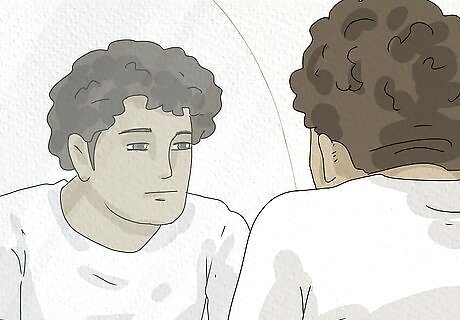
Base your sense of identity on several different sources. Ask yourself, “Who am I?” Then, come up with as many answers to that question as you can. The more answers, the better. The more stable your sense of identity is, the less likely you are to have a fragile ego—and it’s easier to create a stable identity when it’s based on multiple different factors. For example, you might base your identity on things like your job, family, relationship status, personality, skills, values, and the place you live. So, when considering the question, your answers could include things like: “I’m a nurse.” (Job) “I’m a big sister and daughter.” (Family) “I’m a wife.” (Relationship status) “I’m a creative person.” (Personality) “I’m a softball player.” (Skills) “I’m a Buddhist.” (Values) “I’m an American.” (Place)
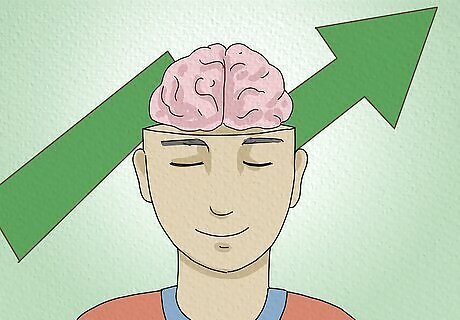
Adopt a growth mindset and let go of perfectionism. A growth mindset is essentially the belief that skills and intellect can be developed over time. To adopt a growth mindset, do your best to change your internal narrative; pay attention to your thoughts and start seeing challenges as opportunities rather than ways to fail. Embrace your imperfections, and prioritize learning new things over getting approval from others. With a fragile ego, you’re more likely to have a fixed mindset (which is the belief that skills and intellect are static and don’t change). Adapting a growth mindset makes it easier to focus on growing as a person and accepting mistakes as a part of life rather than constantly chasing perfection. Changing your mindset isn’t always easy, but seeing the world (and yourself) in a more positive light is absolutely possible with time and practice.

Treat yourself with unconditional love and acceptance. Nobody is perfect; everybody stumbles and makes mistakes sometimes because it’s a natural part of life. When that happens, remind yourself that you are worthy of love and acceptance exactly as you are. Use daily positive affirmations to get in the habit of treating yourself with love and acceptance, and remember that it’s never too late to learn something new about yourself. For example, you might use affirmations like, “I deserve happiness and joy” or “I appreciate all the ways that I’m unique.”

Work with a therapist to strengthen your fragile ego. If you think you may have a fragile ego, find a therapist and work with them to develop a stronger sense of self-esteem. A therapist can help you process your emotions, figure out what kind of progress you want to make, and support you as you overcome your fragile ego. If you have insurance, find a therapist from the company’s in-network providers. Therapists are also available through online platforms like BetterHelp and Talkspace.
How to Handle People with Fragile Egos

Offer nonjudgmental and lighthearted advice. It can be tricky to give someone with a fragile ego constructive criticism because it may trigger a defensive response. However, rephrasing your advice slightly can help them process it without getting upset. When you have to correct them, use a lighthearted tone and positive language. Then, offer a rational reason for making that correction, so they can clearly see it isn’t personal. For example, saying, “You’re preparing that food wrong. Season the meat directly; don’t sprinkle it in the pan,” might make someone with a fragile ego feel defensive. Try to rephrase and say something like, “Thanks for helping me cook! Last time I did this, I found that my meat was way more flavorful when I put seasoning on it directly—would you want to try it that way?”

Tell them that you love and accept them for who they are. Unconditional love and acceptance may help someone with a fragile ego realize their self-worth doesn't depend on your approval. Make a point to give unprompted compliments here and there, or ask their advice to prove that you value their input. When they seem especially unsure of themselves, it may help to directly tell them that you’ll love and accept them no matter what. For example, if someone with a fragile ego tries to impress you with their expensive home decor, you might say, "I really admire your eye for design and style. You’re great at matching colors and patterns! Do you have any decorating tips for me?” You could also be more straightforward and say something like, “Hey, you know I’ll always support you, right? I think you’re talented and smart, and I hope you can see how great you are.”
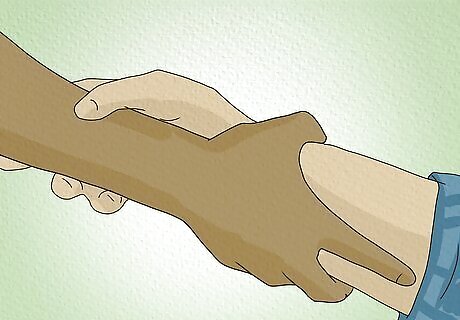
Give them support and reassurance when they feel insecure. If you know someone with a fragile ego, odds are you’ve heard them say very negative things about themselves—things that just aren’t true. Making a sincere connection and offering your support may help them turn some of that negativity around. When they’re struggling to feel good about themselves, step in to reassure them of their value and worth. For example, when you hear a friend of yours saying, “I’m so stupid, I can’t believe I made such a dumb mistake,” you could stop them and say, “Hey, everyone makes mistakes, and you’re one of the smartest people I know.” Encourage your friend to list some of their strengths and best qualities! For example, if you heard them calling themselves stupid, you could say, “That’s not true. I can think of a million great things about you—can you list 5?”
What causes a fragile ego?
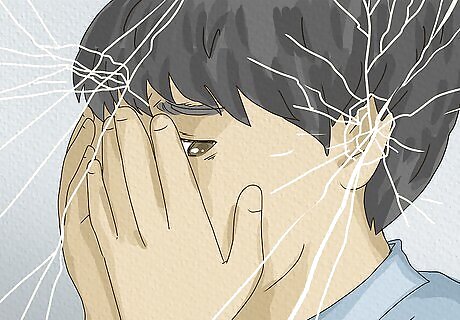
Fragile egos typically begin to develop during early childhood. Most often, people with fragile egos may not have received unconditional love from their parents; rather, they may have been criticized, judged, neglected, abused, or somehow given the idea that they’re not “valuable.” That kind of treatment can manifest later as a fragile psyche, complete with a lack of self-esteem and an unstable sense of self.

Narcissists tend to have fragile egos as well. However, not everybody with a fragile ego is a narcissist. People with narcissistic personality disorder (NPD) often develop fragile egos for similar reasons that other people do—they may experience a lack of unconditional love and acceptance during their childhoods. As adults, narcissists may go to great lengths to create a false self in order to win approval and admiration. Narcissists also tend to have a grandiose perception of themselves, meaning they believe everything about them is special. For example, narcissists often believe they’re powerful or wealthy, even if they’re not.
Are fragile egos more common in men?

Some men have fragile egos, but it’s not a universal issue. Anybody (of any gender) can have a fragile ego, though certain cultural stereotypes relate directly to the male ego and do affect some men. In some cases, a man's ego can be shaped by how he views himself in the world and whether he feels like he’s successfully living up to society's expectations. For example, some men base their ego and self-worth on questions like: Am I masculine enough? Do other people see me as masculine? Am I strong enough? Am I in control of the situation? Do people respect me for my strength and masculinity? Not all men base their ego on those qualities or have fragile egos; however, men who do believe in those cultural stereotypes may develop a fragile ego if they feel like they aren’t fulfilling them.




















Comments
0 comment